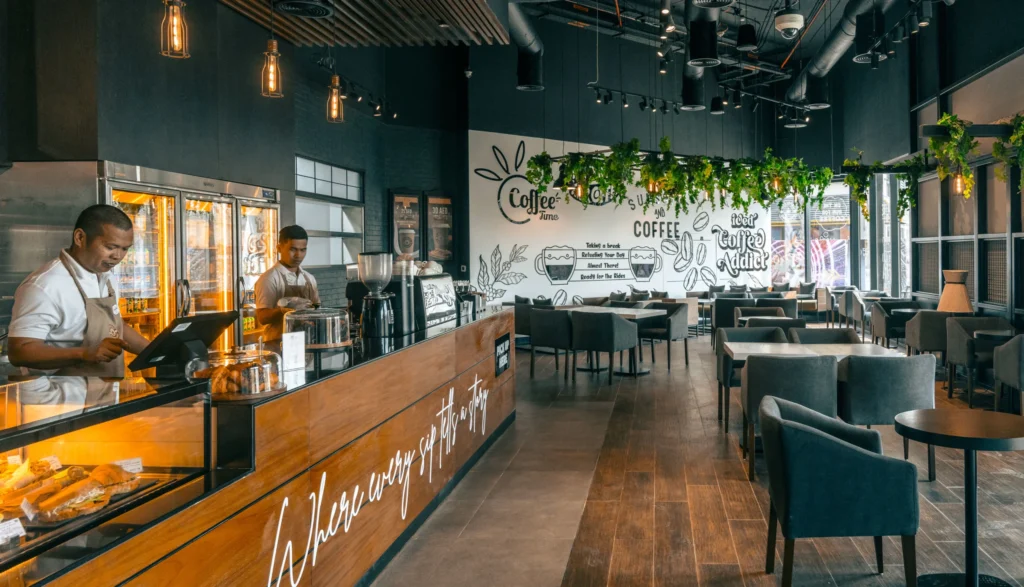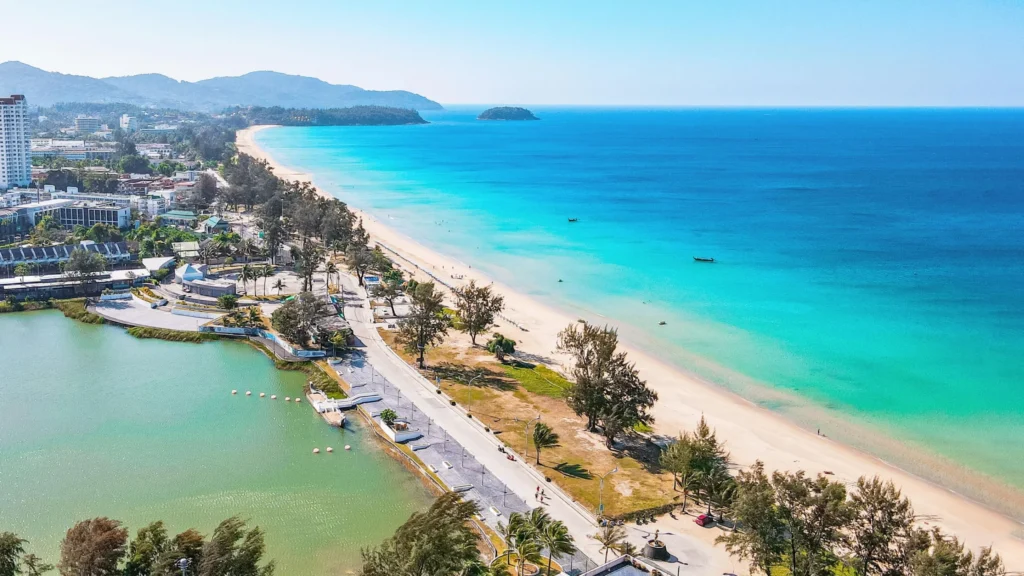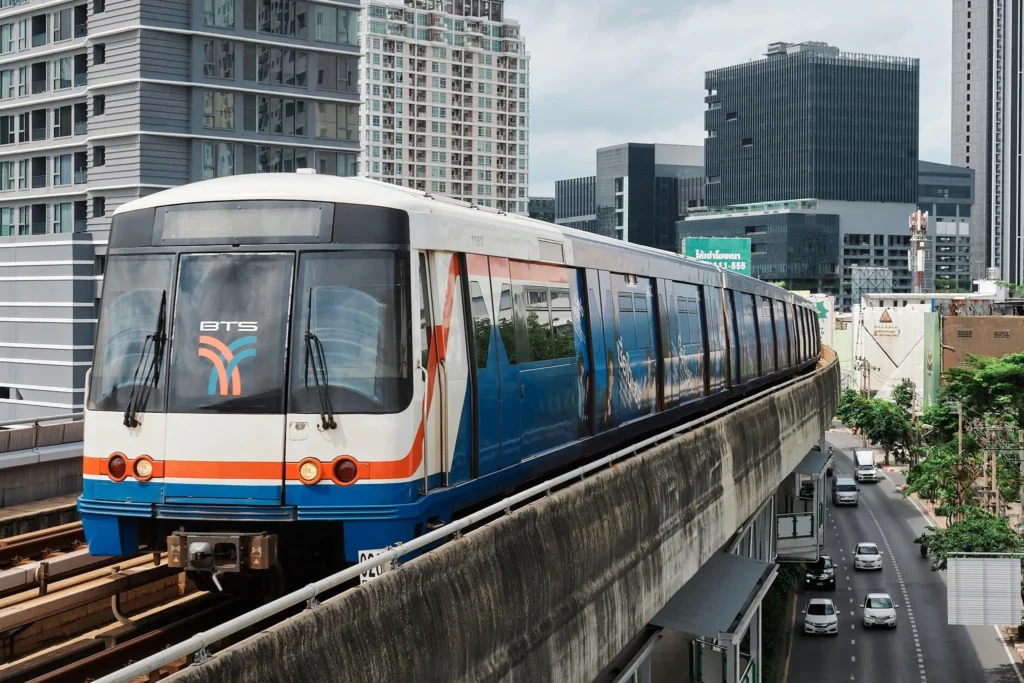Using Crypto in Thailand: What’s Real, What’s Hype, and Where You Can Actually Spend It
December 26, 2024

FAQ: Where Can I Use Crypto in Thailand (2025)
If you’ve ever asked yourself, “Can I actually use crypto in Thailand, or is it just for trading?” — you’re not alone. In 2025, digital currencies like Bitcoin and USDT aren’t just sitting in wallets anymore; they’re quietly making their way into real-world transactions across Thailand. From hip cafés in Bangkok to beachfront rentals in Phuket, crypto is starting to show up in places you might not expect. It’s not everywhere (yet), but if you know where to look—and how to ask—you might be surprised at what you can buy without touching a single baht.
Q1: Can I really use crypto in Thailand to pay for everyday stuff?
Yes, but it’s still a developing scene. You won’t be paying for groceries at every shop or topping up your BTS card just yet, but crypto payments are no longer just for show. In places like Bangkok and Phuket, you’ll find select businesses—from cafés to boutique hotels—that do accept digital coins like Bitcoin and USDT.

Q2: What kinds of places are most likely to take crypto?
Crypto use is emerging most noticeably in hospitality, lifestyle, and tourism-related businesses. In Bangkok, a growing number of cafés, spas, co-working spaces, and even a few tech retailers are warming up to digital payments. Many are located in popular areas like Sukhumvit and Silom, where crypto-savvy locals and tourists tend to cluster. In Phuket, meanwhile, it’s the beachfront bars, scooter rentals, yoga retreats, and smaller hotels that are more likely to accommodate crypto transactions. Some vendors are formal about it, others just prefer the flexibility of stablecoins for international clients.

Q3: Is it easier to use crypto in Bangkok or Phuket?
Both cities have their advantages. Bangkok tends to be a bit more structured, with businesses integrating crypto through wallet QR codes or third-party processors like BitPay. You might not see signs advertising it, but if you ask, you might be surprised. Phuket, by contrast, leans more informal. Business owners there, especially those catering to digital nomads and short-term travelers, are sometimes more willing to accept crypto—particularly if you’re paying in USDT.

Q4: Are Bitcoin and USDT the main coins used?
Definitely. Bitcoin is still the best-known, and it’s used for larger transactions like hotel stays or tours. That said, the volatility makes it a bit trickier for day-to-day payments. Stablecoins like USDT are increasingly preferred by both sides—less fluctuation means less stress. Some places may also accept coins like BNB or USDC, but BTC and USDT are the most commonly used in Thailand’s small-but-growing crypto economy.
Q5: What about the legal side—are Thai businesses allowed to take crypto?
It’s a bit of a gray area. Crypto trading is legal and regulated in Thailand, with major exchanges like Bitkub and Binance TH licensed by the SEC. But when it comes to everyday retail use, things get murky. Some businesses avoid potential issues by immediately converting crypto payments to Thai baht through platforms, reducing exposure to regulation and volatility. Others simply operate quietly and informally. It’s unlikely that a tourist would get in trouble for spending crypto, but local vendors are navigating a more complex legal landscape.
Q6: Why is crypto becoming more practical to use in Thailand?
A big reason is convenience—especially for foreigners. Opening a Thai bank account can be a hassle, and exchange rates or transfer fees add another layer of friction. Crypto helps bypass that. With stablecoins, in particular, travelers and expats can make direct payments without worrying about cross-border banking rules. The growing popularity of crypto conferences and Web3 startups in Thailand has also created a cultural shift, where crypto payments feel more natural—especially in places that cater to a global crowd.

Credit from : Institute of New Economic Thinking
Q7: How do I find places that accept crypto without guessing?
Not every business promotes their crypto-friendliness openly, so your best resource might be other travelers. Telegram groups, Reddit threads, and Web3 travel communities are often more up-to-date than Google or TripAdvisor. You can also politely ask vendors if they’re open to crypto—some won’t say yes until you ask.

Credit from : TripAdvisor
Q8: Can I use crypto for public transport or mainstream services?
Unfortunately, no—not yet. Services like the BTS Skytrain, MRT, or local buses still require baht or cashless Thai apps like Rabbit Line Pay. Same goes for national chains like 7-Eleven or Grab. So while crypto works in certain areas, it’s not a replacement for local currency across the board.

Q9: Any tips for using crypto smoothly in Thailand?
One: use stablecoins like USDT for better price stability. Two: have a mobile wallet that’s easy to scan and use—apps like Trust Wallet or MetaMask work well. And three: always confirm the terms before you send anything. A quick double-check on rates, gas fees, or wallet addresses can save you headaches. Having a backup baht-based option is still a good idea too—just in case the place you’re at says no.
Q10: So, really—where can I use crypto in Thailand in 2025?
If you’re heading to Bangkok or Phuket, you’ll find more crypto-accepting businesses than ever before. It’s still niche, and it requires a bit of effort, but it’s happening. BTC and USDT are your best bets, especially for mid-size purchases—think drinks, spa treatments, or hotel bookings.
Crypto isn’t the default payment method in Thailand, not yet. But it’s no longer just theoretical either. With the right mindset (and the right wallet), you’ll likely find a few solid spots to use your digital coins—and maybe even make a local connection while doing it.

